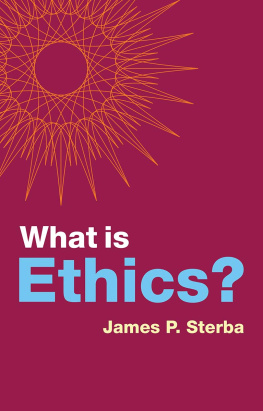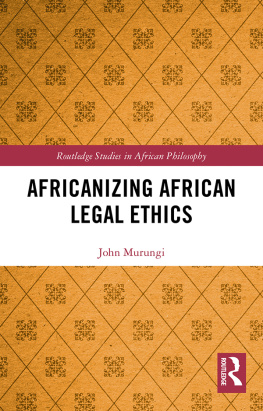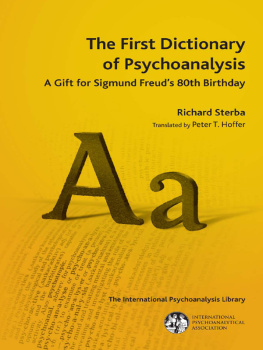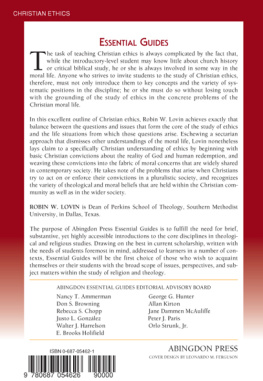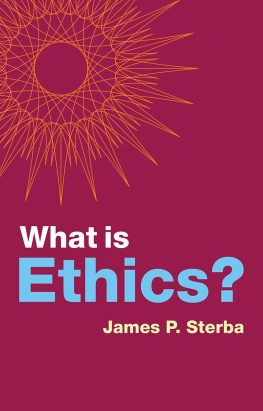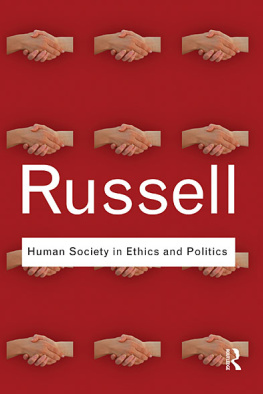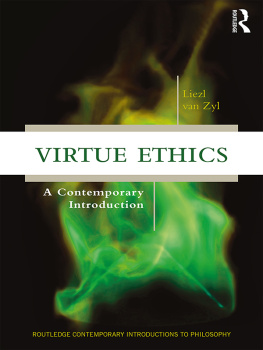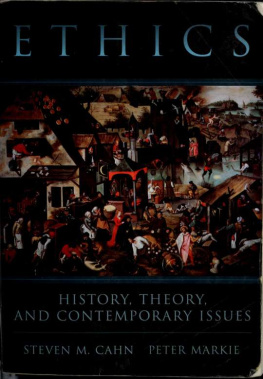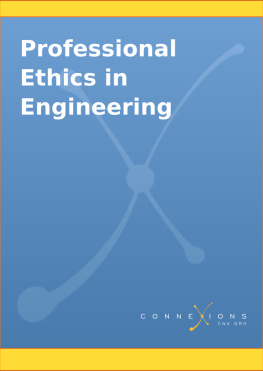Sterba - What is ethics?
Here you can read online Sterba - What is ethics? full text of the book (entire story) in english for free. Download pdf and epub, get meaning, cover and reviews about this ebook. year: 2020, publisher: Polity Press, genre: Politics. Description of the work, (preface) as well as reviews are available. Best literature library LitArk.com created for fans of good reading and offers a wide selection of genres:
Romance novel
Science fiction
Adventure
Detective
Science
History
Home and family
Prose
Art
Politics
Computer
Non-fiction
Religion
Business
Children
Humor
Choose a favorite category and find really read worthwhile books. Enjoy immersion in the world of imagination, feel the emotions of the characters or learn something new for yourself, make an fascinating discovery.
What is ethics?: summary, description and annotation
We offer to read an annotation, description, summary or preface (depends on what the author of the book "What is ethics?" wrote himself). If you haven't found the necessary information about the book — write in the comments, we will try to find it.
Sterba: author's other books
Who wrote What is ethics?? Find out the surname, the name of the author of the book and a list of all author's works by series.
What is ethics? — read online for free the complete book (whole text) full work
Below is the text of the book, divided by pages. System saving the place of the last page read, allows you to conveniently read the book "What is ethics?" online for free, without having to search again every time where you left off. Put a bookmark, and you can go to the page where you finished reading at any time.
Font size:
Interval:
Bookmark:

Sparkling introductions to the key topics in philosophy, written with zero jargon by leading philosophers.
Stephen Hetherington, What is Epistemology?
James P. Sterba, What is Ethics?
Charles Taliaferro, What is Philosophy of Religion?
James P. Sterba
polity
Copyright James P. Sterba 2020
The right of James P. Sterba to be identified as Author of this Work has been asserted in accordance with the UK Copyright, Designs and Patents Act 1988.
First published in 2020 by Polity Press
Polity Press
65 Bridge Street
Cambridge CB2 1UR, UK
Polity Press
101 Station Landing
Suite 300
Medford, MA 02155, USA
All rights reserved. Except for the quotation of short passages for the purpose of criticism and review, no part of this publication may be reproduced, stored in a retrieval system or transmitted, in any form or by any means, electronic, mechanical, photocopying, recording or otherwise, without the prior permission of the publisher.
ISBN-13: 978-1-5095-3104-2
A catalogue record for this book is available from the British Library.
Library of Congress Cataloging-in-Publication Data
Names: Sterba, James P., author.
Title: What is ethics? / James P. Sterba.
Description: Medford, MA : Polity, 2019. | Series: What is philosophy? | Includes bibliographical references.
Identifiers: LCCN 2019020139 (print) | LCCN 2019981528 (ebook) | ISBN 9781509531011 (hardback) | ISBN 9781509531028 (pbk.) | ISBN 9781509531042 (ebook)
Subjects: LCSH: Ethics.
Classification: LCC BJ1012 .S693 2019 (print) | LCC BJ1012 (ebook) | DDC 170--dc23
LC record available at https://lccn.loc.gov/2019020139
LC ebook record available at https://lccn.loc.gov/2019981070
The publisher has used its best endeavours to ensure that the URLs for external websites referred to in this book are correct and active at the time of going to press. However, the publisher has no responsibility for the websites and can make no guarantee that a site will remain live or that the content is or will remain appropriate.
Every effort has been made to trace all copyright holders, but if any have been overlooked the publisher will be pleased to include any necessary credits in any subsequent reprint or edition.
For further information on Polity, visit our website: politybooks.com
Ethics is the one field of study that we all need. This is because we all make choices and ethics is about the general norms that govern how we should make those choices. Not surprisingly, there is disagreement over what those norms are. What this book does is help you to work through that disagreement so that you can then make better choices.
I want to thank Oxford University Press and Pearson Education, Inc. for permission to reprint from previous work.
Introduction
At first glance, ethics appears to be unlike other areas of inquiry. After all, we cannot find contemporary defenders of Ptolemy (10070 CE), Copernicus (14731543), or Isaac Newton (16421727), all claiming to have the best theory of the physics of celestial motion. Nor are there contemporary mercantilists or physiocrats, as there were in the 18th century, all claiming to have the best theory of macroeconomics. However, we can find contemporary defenders of Aristotle (384322 BCE), Immanuel Kant (17241804), and John Stuart Mill (180673), for example, all claiming to have the best theory of ethics. While significant disagreements remain in other areas of inquiry, the extent of disagreement appears to be much greater in ethics.
Of course, one explanation for this seemingly greater disagreement is that there is little or nothing that can really be established in ethics. This would explain why so many of the ethical theories that have been proposed in the past continue to have their contemporary defenders. On this account, ethics simply lacks the resources to defeat any of the contending theories, and so they all remain live options. Obviously, this explanation does not put ethics in a very favorable light.
Fortunately, a better explanation is that traditional theories of ethics, whether they justify actions simply in terms of their consequences or not, have come to be revised and reformed in such a way as to make them quite different from the original theories of the philosophers after whom they are still named. While Aristotle endorsed slavery and the subordination of women, and Kant advocated racism as well as the subordination of women, and Mill supported colonialism, it would be difficult to find any contemporary defenders of these philosophers who still endorse these particular views. Contemporary defenders all claim to be defending revised and reformed versions of Aristotles, Kants, and Mills original ethical theories. So this would allow for progress to be made in ethics similar to the progress that has been made in other areas of knowledge. In this regard, then, ethics would be like physics and economics.
Still, it could be argued that ethics is unlike physics and economics in that its requirements are simply the product of a particular culture and therefore are relative to and applicable to just the members of that culture. This is the thesis of ethical or moral relativism.
In support of this view, Herodotus the ancient Greek historian tells a story about Darius the Great, King of Persia (550486 BCE). In the story, Darius
summoned the Greeks who happened to be present at his court, and asked them what they would take to eat the dead bodies of their fathers. They replied that they would not do it for any money in the world. Later, in the presence of the Greeks, and through an interpreter, so they could understand what was said, he asked some Indians, of the tribe called Callatiae, who do in fact eat their parents dead bodies, what they would take to burn them. They uttered a cry of horror and forbade him to mention such a dreadful thing.
Clearly, the Greeks and the Callatiae of Dariuss time approved of their own particular way of showing respect for dead parents and disapproved of the others way of doing the same as a course of action for themselves.
There are other examples of this sort. Danish explorer Peter Freucher reports on the following practices of the Eskimos or Inuit of the North in the early 20th century:
When an old man sees the young men go out hunting and cannot himself go along, he is sorry. When he has to ask other people for skins for his clothing, when he cannot ever again be the one to invite the neighbors to eat his game, life is of no value to him. Rheumatism and other ills may plague him and he wants to die. This has been done in different ways in different tribes, but everywhere it is held that if a man feels himself to be a nuisance, his love for his kin, coupled with the sorrow of not being able to take part in the things which are worthwhile, impels him to die. In some tribes, an old man wants his oldest son or favorite daughter to be the one to put the string around his neck and women may sometimes prefer to be stabbed with a dagger into the heart a thing which is also done by a son or a daughter or whoever [sic] is available for the deed.
Surely, such practices toward the old are quite different from those that prevail in most societies today, and even different from the practices that now prevail among the Inuit. These are the sort of examples that are offered in support of the thesis of ethical relativism.
Next pageFont size:
Interval:
Bookmark:
Similar books «What is ethics?»
Look at similar books to What is ethics?. We have selected literature similar in name and meaning in the hope of providing readers with more options to find new, interesting, not yet read works.
Discussion, reviews of the book What is ethics? and just readers' own opinions. Leave your comments, write what you think about the work, its meaning or the main characters. Specify what exactly you liked and what you didn't like, and why you think so.

